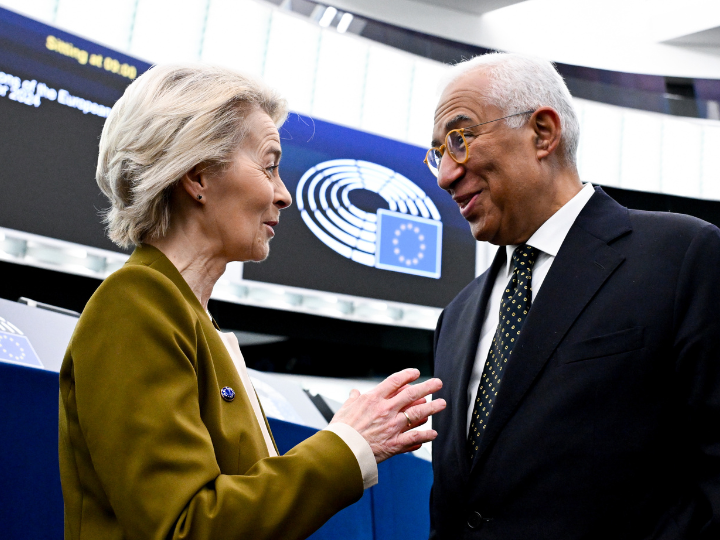by
Martin Hufner
To avoid any misunderstandings: I am a firm believer in European integration. But I increasingly wonder whether the process of European integration, as it is pursued today, leads to success in the long term.
The current approach is based on the conviction that Europe can only become stronger through additional enlargement and/or deepening.
As to the enlargement dimension, Brussels is currently considering to include the Western Balkan countries in the EU and Bulgaria in the euro. As to deepening, key issues currently are the well-known project of a European Monetary Fund and a separate budget for the euro area.
In any case, the core idea is that something always has to happen. It’s the old bicycle theory — a bicycle falls over when it’s not kept moving all the time.
A success story beyond compare
The approach was certainly not wrong. Over the past 60 years, it has succeeded in building a European Union of over 500 million people, a Single Market with a purchasing power of 15 trillion euros and a European currency that enjoys a good reputation worldwide. That is a success story beyond compare.
Number of members in the EU

But now, one can see cracks in the European armor that make me rethink. The UK is the first member to leave. Italy, some say, could also eventually leave the community. The country’s European Affairs Minister even expects “further withdrawals” from the EU beyond his own country. What’s on the horizon may thus be shrinkage, as far as countries that are key to European integration are concerned, not more expansion.
There are also problems with deepening. Basic features of the EU are under immense stress. The Schengen Agreement, which is so important for the quality of (borderless) life in Europe, is abolished in important places. There are traffic jams on the border between Austria and Germany again.
More than bottlenecks
Collaboration between member countries stagnates on important issues. Poland and Hungary have problems with the democratic separation of powers. No agreement can be reached on the distribution of refugees between countries. Germany is afraid of the transfer union.
I suspect that cooperation would be even worse (and perhaps more countries would have quit) if there were not so much money to be spread by Brussels. In any case, we are further away than ever from a political union that has always been the core goal of the entire European enterprise.
Moreover, people are dissatisfied with Europe. Euro-critical parties get fed up. There is increasing doubt as to what the community is good at all. Throughout the entire post-war era, that was never a question: The purpose of European unification was to make war on the continent impossible once and for all.
But to the current generation of young people, that’s very much in the past. The EU therefore needs a new raison d’etre. Ensuring that Europe can only hold its own against the great powers America and China is such a reason. But it’s not something that’s easily conveyed to the population at large in any concrete terms.
Rebuild the EU from the core
Here is an idea to discuss: What if we focus no longer on advancing Europe by more and more members and institutions, but on the contrary by less? Rebuild the EU from the core, so to speak.
Properly understood, if and when countries leave the community, this is not a catastrophe but a chance for the others to come closer together. The fewer members, the better. You do not have to encourage anyone to quit. But if it happens, it’s not a catastrophe.
The case of the United States is instructive here in a historical context. In the Civil War of 1861-65, a good 80 years after the founding of the United States, 11 Southern states wanted to secede. In the end, not only did their effort fail – but the union emerged stronger eventually.
A reduction in size of the EU at first glance looks like a failure. But that is the wrong frame. When countries (like the UK) that have always felt on the fringes decide to leave the community, only those stay that really feel they belong together.
Eurozone as the core
This ought to strengthen the level of cohesion. Cultural and historical similarities are key in creating a sense of community. Among such nations, there is no need for special justifications for the EU. It is just there and, despite criticisms, broadly accepted by the people (as is the case with their own respective nation state).
Under such circumstances, political cooperation should become easier. The fear of a boundless transfer union is greatly reduced. After all, nation states, for their part, also have transfer payments that are accepted by the population — not without complaint.
Of course, the euro would have to be adapted to the changed circumstances. But then it could stand on the basis of a functioning political union. That would make it more resilient. There has never been a currency in history without political union.
Meanwhile, pure economic cooperation within the former “big” Union can remain. It is accepted by all and would not persuade a member to quit the EU. It does not need a political union either.
*Former chief economist of Germany's HVB Group.
**First published in theglobalist.com




 By: N. Peter Kramer
By: N. Peter Kramer

